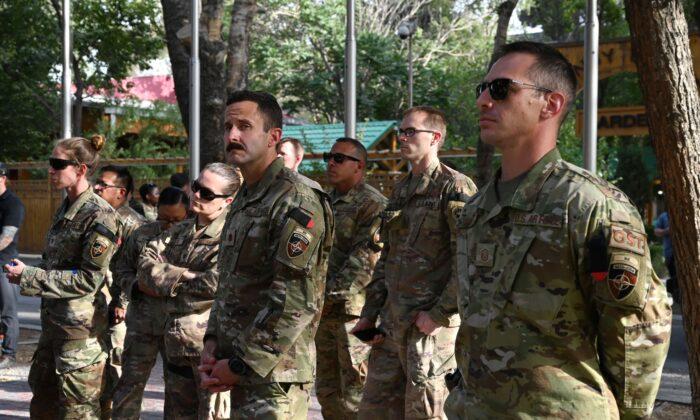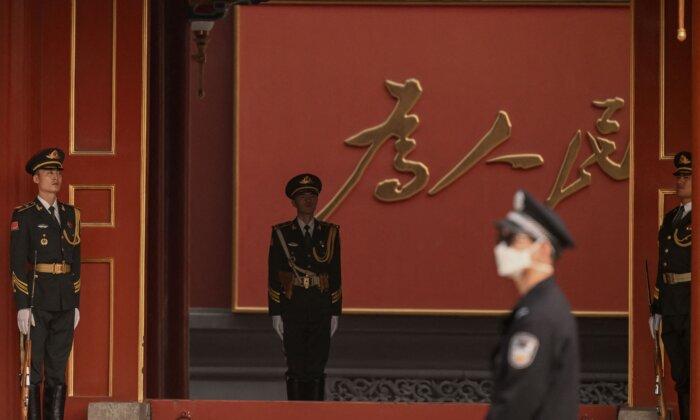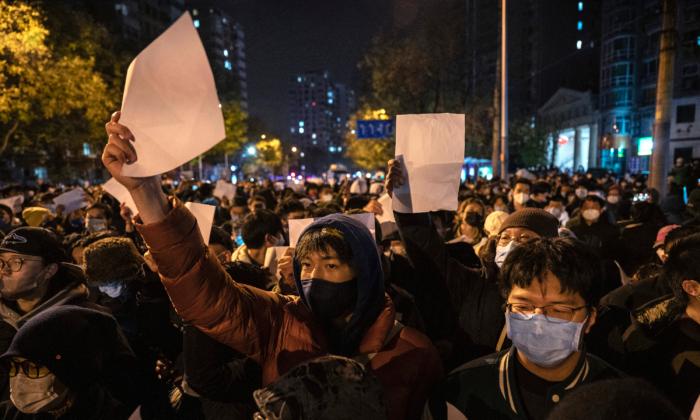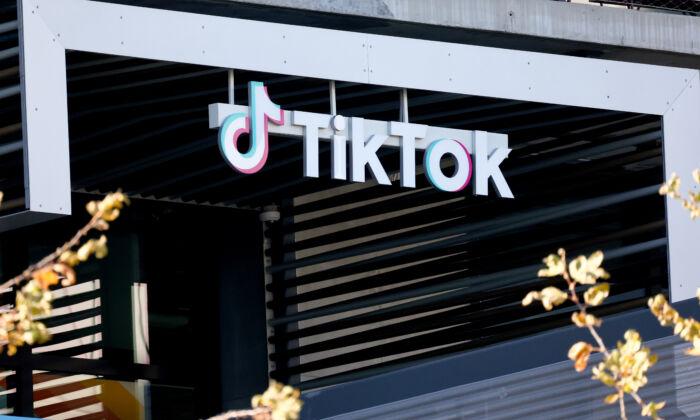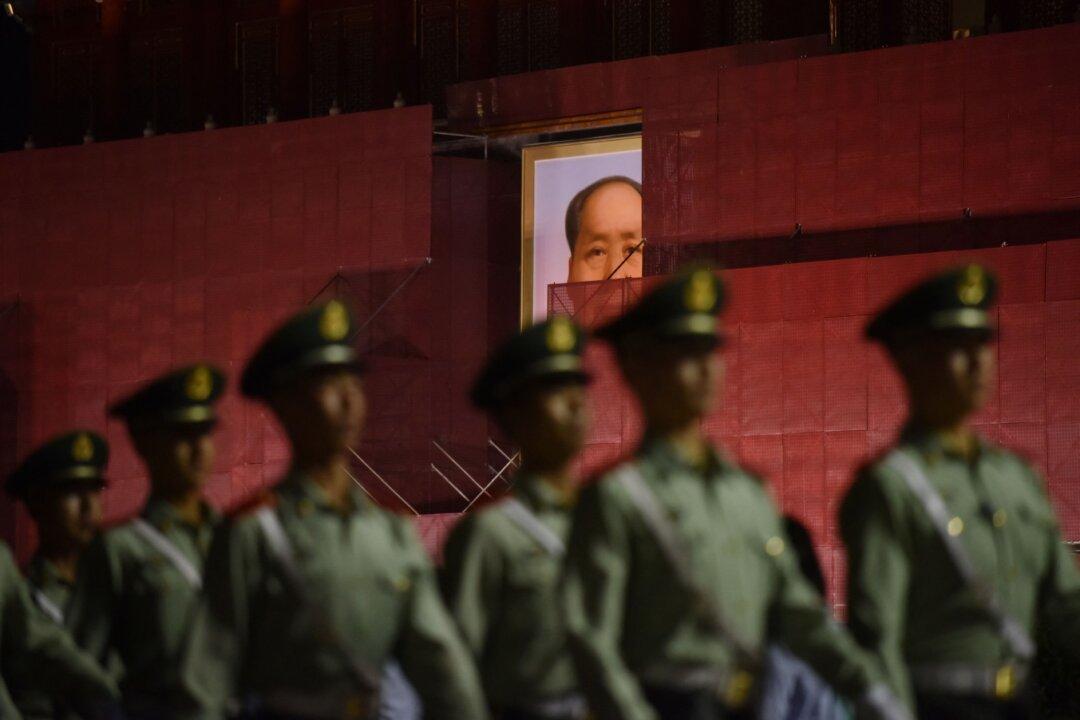The weak performance of the Russian military in its invasion of Ukraine underscores that military effectiveness is dependent upon many factors such as maintenance and training, which, in turn, depend upon possessing a professional military that can accurately assess its own weaknesses and flaws.
To do so requires honesty by the military organization in its evaluation of itself and what is reported to political leadership. When he sat for a portrait, Oliver Cromwell purportedly told the artist that he wanted to be painted “warts and all.” Like Cromwell, a professional military should provide its political leadership with an accurate assessment of its problems.
Xi’s ‘Anti-Corruption’ Campaign Damages the PLA’s Professionalism
If military professionalism may be sustained in the face of political headwinds, the United States and allied militaries possess a significant advantage over the People’s Liberation Army (PLA). As China is a communist state, the PLA operates under subjective civilian control, which has a noticeable impact on the leadership of the Chinese regime, PLA leadership, and the PLA’s performance.Chinese leader Xi Jinping’s “anti-corruption” campaign was launched in November 2012. As the campaign intensified in 2013-2015, targeting members of the Politburo and Central Military Commission (CMC), it upset normal working relationships in the PLA.
Xi framed the “anti-corruption” campaign as necessary to professionalize the force and strengthen China’s national security. As Xi stated many times, corruption cannot exist in the Chinese Communist Party. This is especially true of China’s military.
Corruption is endemic in the PLA and has long been tolerated. For example, senior officers take payments from subordinates. The campaign has considerable support among junior officers who perceive it as a step forward in professionalism.
In actuality, the campaign targets Xi’s opponents in the PLA. It serves as a mechanism to enforce his ideology on the PLA and exert control of the military through the employment of the Disciplinary Committee.
Xi’s campaign has been an effective tool to reward his supporters and eliminate his enemies and potential rivals, including the 2014 fall of the “Big Tigers,” PLA generals such as Xu Caihou, and the head of the United Front Work Department, Ling Jihua.
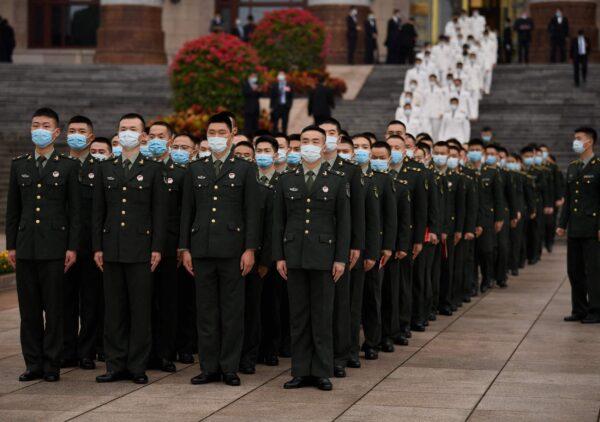
Sustaining the Professionalism of the US Military
For a U.S. victory over communist China, the longer the United States preserves its Cold War legacy of military and the longer the PLA is fettered by political interference, the better. The Chinese regime is America’s enemy, and the PLA is its principal cudgel to defeat U.S. global interests and destroy the ability of the United States to impede the regime’s goals.To aid the PLA in any manner is supreme folly. The United States must terminate all formal and informal mil-mil relationships with the PLA, encourage its allies to end them, and ensure that the PLA does not learn how to employ effectively objective civilian control.
Civilian control requires stark honesty, which is difficult to achieve in the best of circumstances, and the challenge is far greater in a country enduring ideological upheaval.
As historical cases of the French Revolution and upheaval in the Red Army after Russia’s Bolshevik Revolution demonstrate, ideological fervor can be the opponent of truth. In this instance, the United States must look to its past.
A significant outcome of military professionalism during the Cold War was the favorable environment for innovation made possible by institutions—the services, civilian and military leadership, industry, and defense intellectuals—willing to critique needs, objectives, and performance. All of which helped to sustain U.S. military effectiveness.
A Rebirth of Professionalism
There is an opportunity for U.S. civilian and military leadership to have a renaissance in military professionalism if civilian leadership embraces its ethos and maintains its standards. The Pentagon’s leadership must not deceive itself and permit political influences to supplant objectives through gradual erosion, by inadvertent or by intentional measures.The military domain must be sacrosanct in the civil-military relationship. Sound and stable civil-military relations are a necessary and important fillip in the struggle against the Chinese regime. These are asymmetries in the struggle with Beijing.
The U.S. military requires educational reform to convey the value and opportunities of objective civilian control to civilian members of the Department of Defense, especially civilian leadership. To lose military professionalism is to lose the ability of the United States to meet the requirements of the defense of the country and its commitment to its allies.
To deepen the understanding, professionalism through professional military education, the attention of senior leadership, and the analytical community provide an opportunity for its rebirth and so provide an essential pillar in the confrontation with the Chinese regime.
